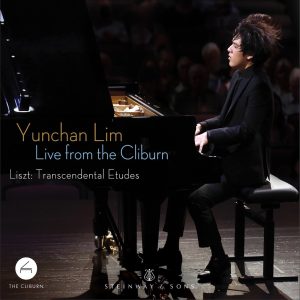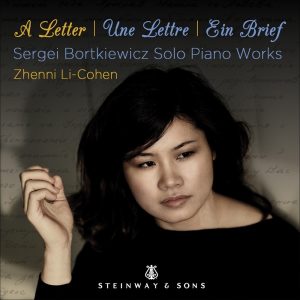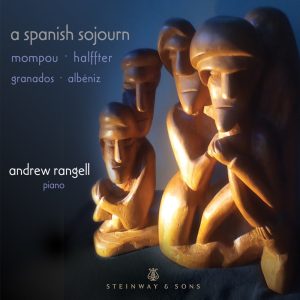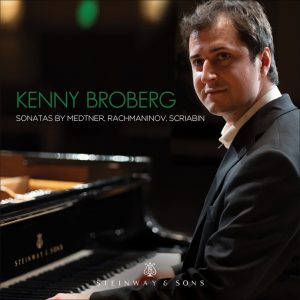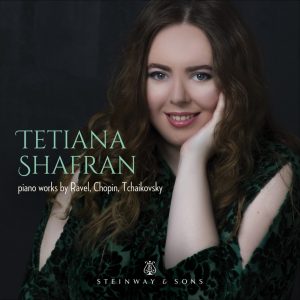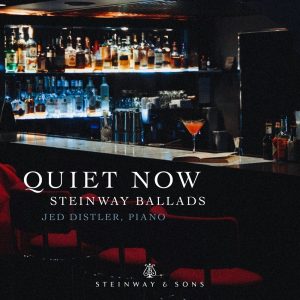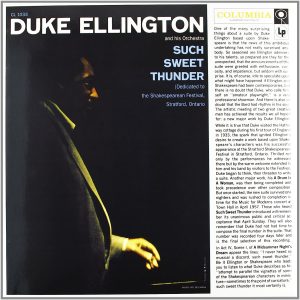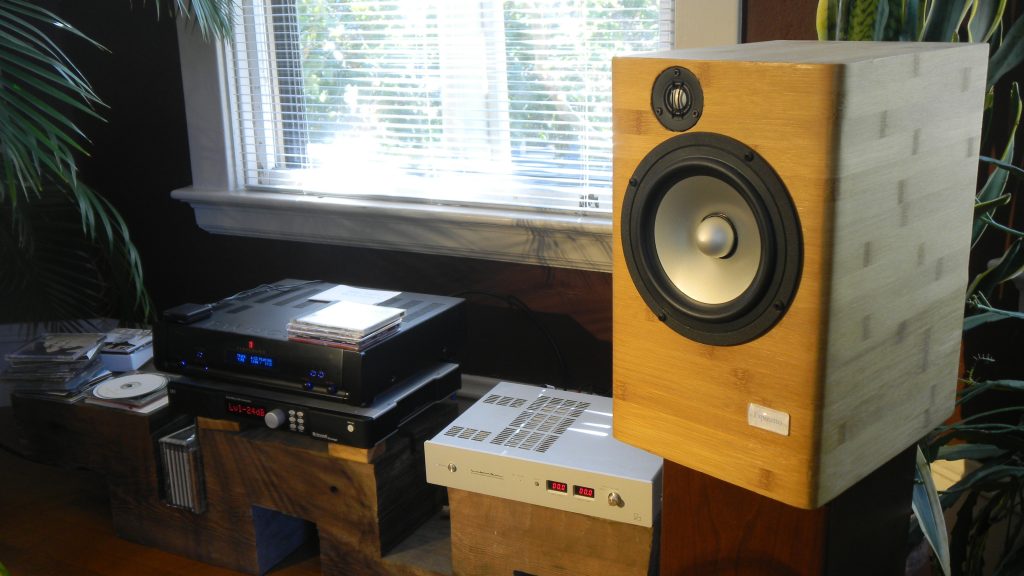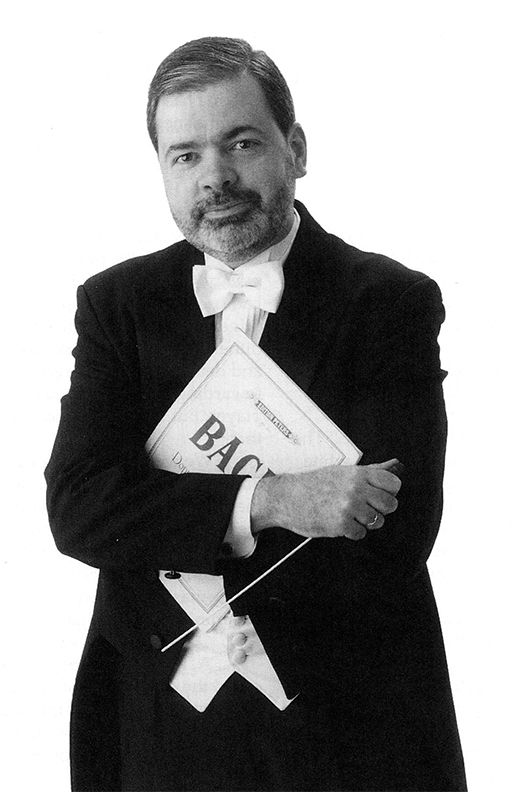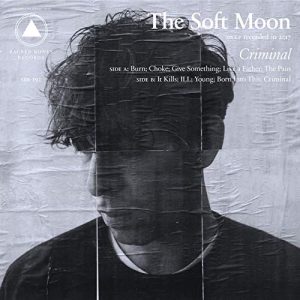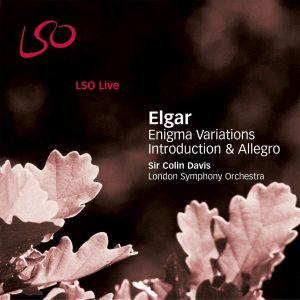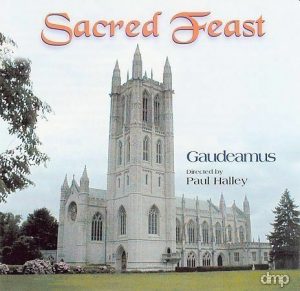When it comes to supporting their Steinway Artists (by which Steinway & Sons actually means pianists; when Steinway says "artists," they don't mean those guys and girls wearing smocks and berets who wield paint brushes while squeezing oil paint out of tubes), Steinway really puts its money where its Public Relations interests lie.
Steinway is making available for free streaming all the recordings in their Steinway & Sons Recordings catalog (that's more than 100 releases). Better yet, you do not need to register or sign up. Furthermore, there is no limit on how many albums you listen to. (There are also reviews, or at least blurbs, posted for many of the albums.)
[SPOILER ALERT: If classical music is not your usual thing, then just scroll down to the end of this article, and click on the link to listen to the entirety of jazz pianist Jed Distler's Quiet Now, which I think should be Mandatory Demo Material at the next HiFi Show, wherever and whenever that is.]
Now, these no-cost album streams are of only MP3 audio quality. However, with a little bit of a cataloging-backlog lag, Steinway & Sons Recordings titles appear on QOBUZ in better-than-MP3 (CDQ) or high resolution. Furthermore, many (but not all) Steinway titles are available for hi-res downloading from HDTracks.com. Also, Steinway's catalog is easily found on both Apple Music and Spotify.
More than three years ago, I profiled Steinway Streaming for my blog The Tannhäuser Gate. That write-up includes an interesting background quote from Eric Feidner of Steinway. I also recommend (and link to) 13 of my then-favorite Steinway titles. I will not repeat those recommendations here, so you should really check out that post.
The reasons are twofold why I am writing again at this time: Steinway has kept on releasing new titles; and, in particular, their newest title is, in my opinion, a major record-industry coup. Steinway's newest release is Yunchan Lim's Liszt Transcendental Etudes, recorded live at the 2022 Van Cliburn International Piano Competition. And here's the HDTracks link for 24-bit/48kHz downloads. (Amazon seems to list a CD version, but apparently it can't be ordered yet.)
In due course, Yunchan Lim became (at age 18) the youngest-ever winner of the Gold Medal at The Cliburn. (He also won the Audience Prize, and the prize for the best performance of a new work.) This Fall, Lim will begin his studies at the New England Conservatory of Music. Which I, for one, find simply mind-boggling.
However, the All-Time (and perhaps forever) Record and Award for Being a Musical Child Prodigy belongs to Clara (Reisenberg) Rockmore (1911 - 1998), who, at age FOUR, was accepted as a violin student of Leopold Auer's at the Saint Petersburg Conservatory. Four years old. Clara Rockmore later helped Léon Theremin refine his self-named electronic instrument; she became the Theremin's foremost advocate, as well as its greatest virtuoso performer. It's not directly on topic, but I can't resist embedding this Clara Rockmore YouTube.
Back to Young Master Lim. I'd be tempted to say that Liszt's Transcendental Etudes are the musical equivalent of climbing to the top of Mount Everest. But perhaps it would be better to say that Transcendental Etudes are the musical equivalent of climbing to the top of Mount Everest without oxygen tanks. There are places in the scores where it certainly sounds as though you are listening to "piano four hands" rather than to just one pianist.
That said, I feel compelled to tell you that if I were being shipped off to that fanciful Desert Island of BBC Radio fame, and I could only choose between the complete works of Liszt and the complete works of Chopin, I'd choose Chopin, and I'd never look back.
So, by all means, visit Steinway Streaming and prepare for much slackery of your jaw as you listen to Yunchan Lim. However, I urge you first to invest the time to watch this expert commentary by Ben Laude on Lim's live-performance video of "Feux Follets." The literal translation of that title is "Will-of-the-Wisps," which is a folk term for the atmospheric "ghost lights" that are sometimes seen at night over swamps or marshes.
"Feux Follets" is one of the two or three of the Transcendental Etudes that are universally regarded as those that strike the most terror in the hearts of pianists. But for me, the most amazing thing is not the rapidity and fluidity of Lim's passagework. It is the fact that he is serenely smiling, as though he is enjoying some small private joke.
https://www.youtube.com/watch?v=ZFQlVVJTO_U
Here are a few other Steinway & Sons Recordings new releases that caught my eye, and my ear.
A Letter - Sergei Bortkiewicz: Solo Piano Works, Zhenni Li-Cohen (May 2023) HERE
Sergei Bortkiewicz's (1877 - 1952) is a name new to me, I must confess. He was born in the old Russian Empire, but his parents were Polish aristocrats. Eventually, after much struggle during World War One and the Russian Revolution, he settled in Austria, and became a citizen. And then, with World War Two, more misery ensued. Bortkiewicz was taught early on by two former students of Franz Liszt's. Bortkiewicz's compositional style seems to have been influenced not in the least by musical Modernism.
Zhenni Li-Cohen was born in China, but was educated at Juilliard, Yale, and McGill. Britain's authoritative music magazine Gramophone hailed her début recording Mélancholie (also on Steinway's house label), as "A bolt from the blue." However, as before, she leaves the pyrotechnics in the practice room, and concentrates on soulfulness.
A Spanish Sojourn, Andrew Rangell (March 2023) HERE
This attractive release (in demonstration-quality sound) combines one each, of works by two familiar Spanish composers (Enrique Granados' Goyescas, Book 1 no. 4; and Isaac Albeniz' Iberia, Book 2 no. 3), with several works by two less-well-known 20th-century Spanish composers, Federico Mompou and Ernesto Halffter. Halffter's name is new to me, but his work is both idiomatic and pianistic.
The album starts with Halffter's lilting, poignant "Homage to Federico Mompou," which deserves to find a place in the standard repertory. The following track is Halffter's "L'Espagnolade," which is a dance-themed real workout for the pianist. The Granados and Albeniz works are found in the middle of the program. Among the Mompou works are his 19-minute "Variations on a Theme of Chopin," which no self-respecting piano fan will want to miss. The last track is an alternate take of Halffter's Mompou homage. (I guess nobody could decide which take was better.)
Andrew Rangell is one of those rare pianists whose specialty appears to be…not having a specialty, such is the "small-'c'-catholic" span of his artistic ambitions—from Bach to Charles Ives to Bill Evans. His recitals throughout the United States have included ten cycles of the complete sequence of Beethoven's 32 sonatas. BTW, if you like this recording, Rangell has about 20 other recordings on the Steinway label.
Sonatas by Medtner, Rachmaninov, & Scriabin, Kenny Broberg (January 2023) HERE
One of my mentors in life as well as art was Boris Goldovsky of the Metropolitan Opera. After he and his mother fled the October Revolution, they settled in pre-Hitler Berlin. Young Boris' mother Lea Luboshutz re-established her violin studio (Eugène Ysaÿe had been her principal teacher; and, she had also known Debussy); and young Boris studied piano with Artur Schnabel. Therefore, there are only four people shaking hands between Beethoven and me, rather than the usual six or more.
It was always a rare and special treat to hear Mr. Goldovsky play piano pieces live in public, rather than the opera snippets he played during his Metropolitan Opera radio-intermission features. At one memorable benefit recital (ages ago), Mr. G. introduced his next piece by saying:
In recent decades, the solo-piano music of Nicolai Medtner has, sadly, been neglected. Therefore, this evening, I plan to 'glect' it for you!
I honestly don't remember much about what he played; but that ad-lib introduction has always stayed with me.
In any event, Kenny Broberg's début recording on the Steinway label features Medtner's massive "Night Wind" sonata, which clocks in at 33 minutes (Good Lordy!), along with Rachmaninoff's Op. 36 Sonata 2 in B-flat minor (20 minutes), and Scriabin's Op. 53 Sonata 5 in F-sharp minor (c. 12 minutes). Reportedly, all recorded in one day. As an encore, as it were, we are treated to Medtner's brief "Danza Festiva."
Tchaikovsky, Ravel, Chopin, Tetiana Shafran (January 2023) HERE
Tetiana Shafran, who won the Gold Medal of the Olga Kern International Competition in 2019, comes from the same Ukrainian-Russian piano-pedagogical lineage as Van Cliburn. You may very well respond, "Whaa? Wasn't Van Cliburn from Texas?"
Yes, but… while Van Cliburn's mother had studied with a student of Franz Liszt's (that, in and of itself, I find pretty amazing); at the Juilliard School, Cliburn's primary teacher was Rosina Lhévinne, who indeed was from Ukraine, and who had studied at the Moscow Conservatory. Tetiana Shafran is from Ukraine, and she studied with Oxana Yablonskaya, who had studied at the Moscow Conservatory, and who also taught there. (Aaron Diehl is among Yablonskaya's other students.) Small world.
Little surprise then that I hear in Tetiana Shafran's playing the same kind of dynamism, and an almost larger-than-life musical personality of the kind that made Van Cliburn so famous. (Well, that; plus, Cliburn's being in the right place at the right time.)
Shafran's ambitious program starts with Mikhail Pletnev's solo-piano arrangement of 11 scenes from Tchaikovsky's Sleeping Beauty ballet score. Fortunately for us, Pletnev chops about two and a half hours of running time from the complete ballet, leaving us still with 30 minutes of sometimes-dense orchestral music transcribed for piano. The result is Lisztian in places, but there are many moments when Tchaikovsky's lush melodies are allowed to speak for themselves.
The rest of the program consists of Chopin's early Op. 16 Rondo in E-flat major, and Ravel's suite Gaspard de la Nuit. Ravel supposedly said that he wanted the final movement ("Scarbo") of his suite to be a "caricature" of Romanticism. (How Postmodern of him!) Be that as it may, "Scarbo" ranks up there with Liszt's Transcendental Etudes in terms of technical difficulty. Impressive playing, indeed.
Quiet Now - Steinway Ballads, Jed Distler (November 2021) HERE
And now, as Monty Python used to say, for something completely different. Jed Distler is not only a critic who writes beautifully about music; he plays the piano beautifully, as well. Distler's playing is pensive and mellow, but not at all wishy-washy or meandering. He has wonderful phrasing and timing, and his chord-voicing is, if I can use the word, comforting. Does that make sense? ("Comforting" being the antithesis of "Jarring.") He also has a formidable grasp of the history of jazz-piano style.
What an interesting program! It starts with a tune by Duke Ellington and ends with a tune by John Coltrane. The Ellington tune is "Star-Crossed Lovers," from Ellington and Billy Strayhorn's Shakespeare-tribute album Such Sweet Thunder.
Erm, you did know that Ellington and Strayhorn had collaborated on a Shakespeare-tribute album, didn't you?
The Coltrane tune is "Naima." In between, there are four Bill Evans compositions, three other Ellington tunes, and single tunes by Hub Atwood, Ray Noble, Richard Rodgers, Wayne Shorter, Jule Styne, and Ted Shapiro. Denny Zeitlin's "Quiet Now" is the title track.
It's a commonplace (verging on a canard) that female-vocal recordings are unto audiophiles, as catnip is to cats. However, in my experience, that is more of a perception than a reality. I know quite a few audiophiles whose prime frame of reference for evaluating equipment, especially loudspeakers, is well-recorded solo piano. Therefore, I hereby nominate this under-appreciated gem of a recording to join the canon of High-End Audio-Fest Demo-Track Favorites.
If you are using Qobuz…
For all you Qobuz subscribers, I have put together a playlist of the six recommended Steinway titles. (Four of the Steinway titles can be purchased as Hi-Res downloads.)
https://play.qobuz.com/playlist/16032037
Also, I could not resist adding to the playlist Ellington and Strayhorn's Such Sweet Thunder. It really tickles me that Duke Ellington was such a Shakespeare fan that the first time he visited England, one of the first things he wanted to do was to visit Anne Hathaway's cottage, located a mile and a half outside of Stratford-upon-Avon, in Shottery.




